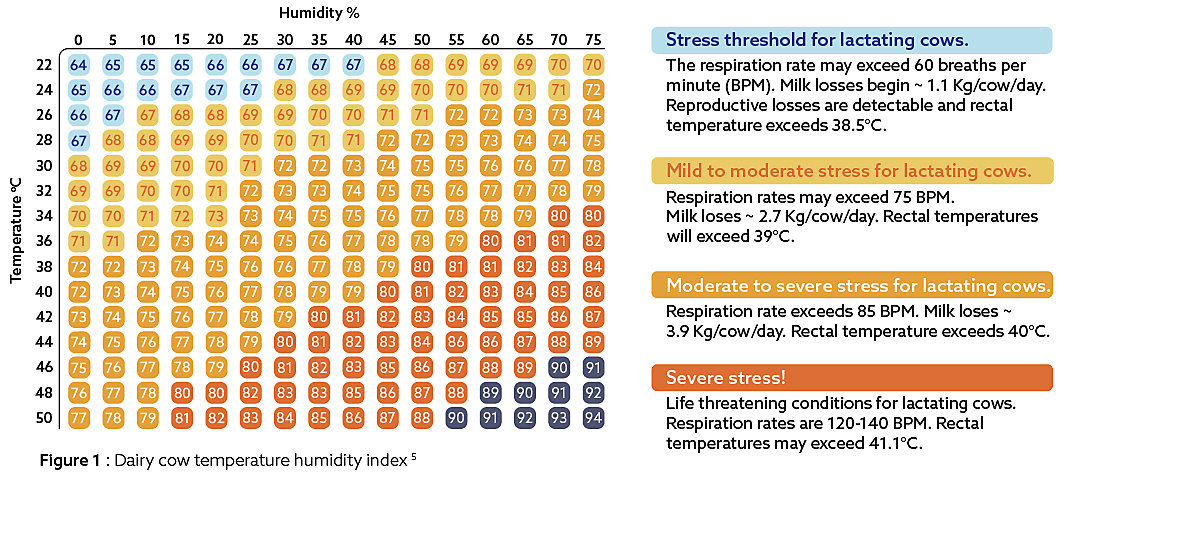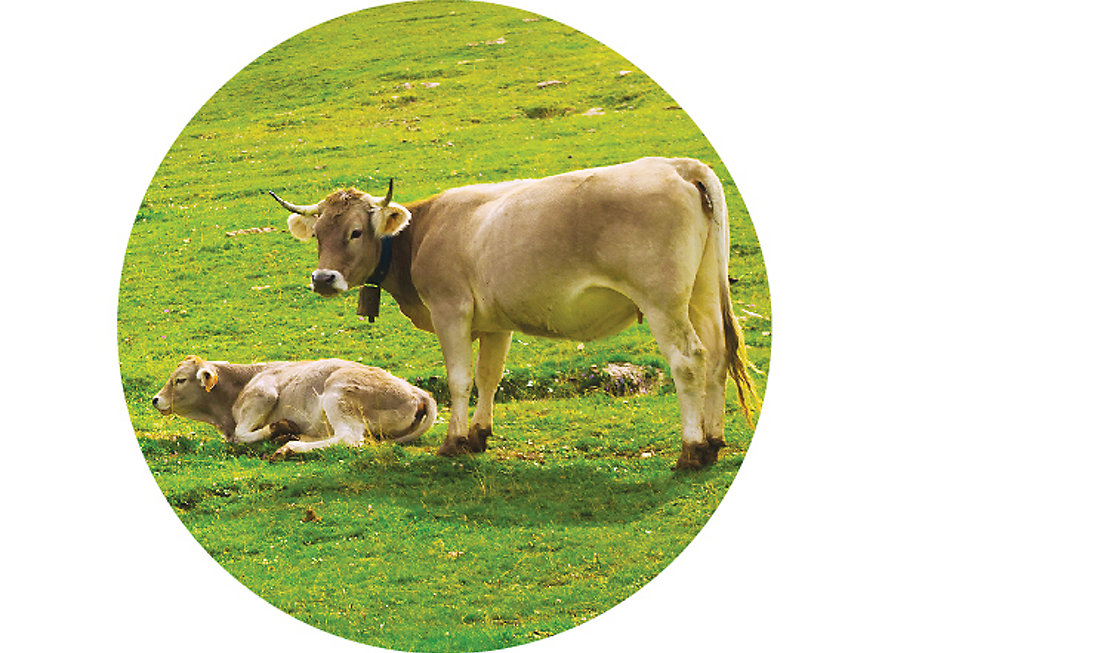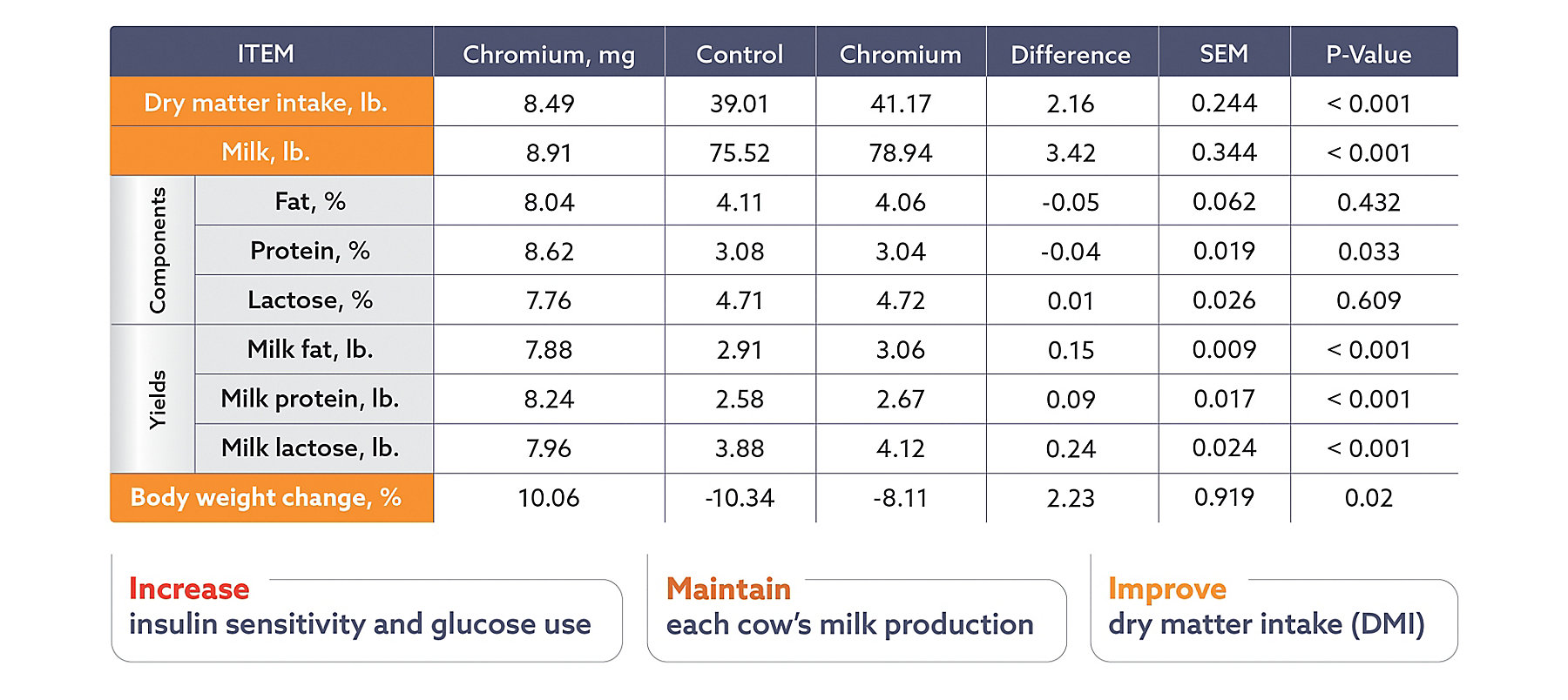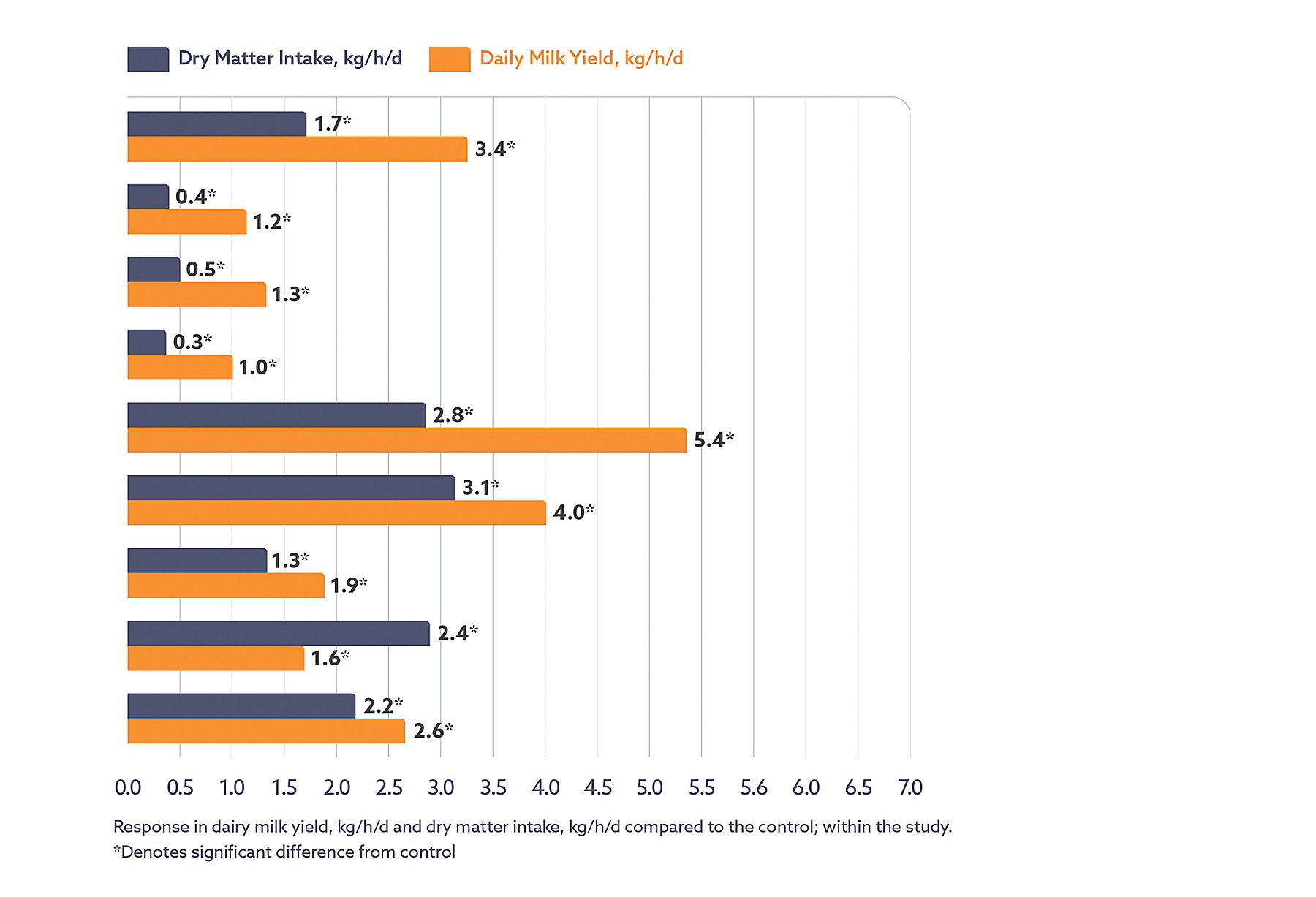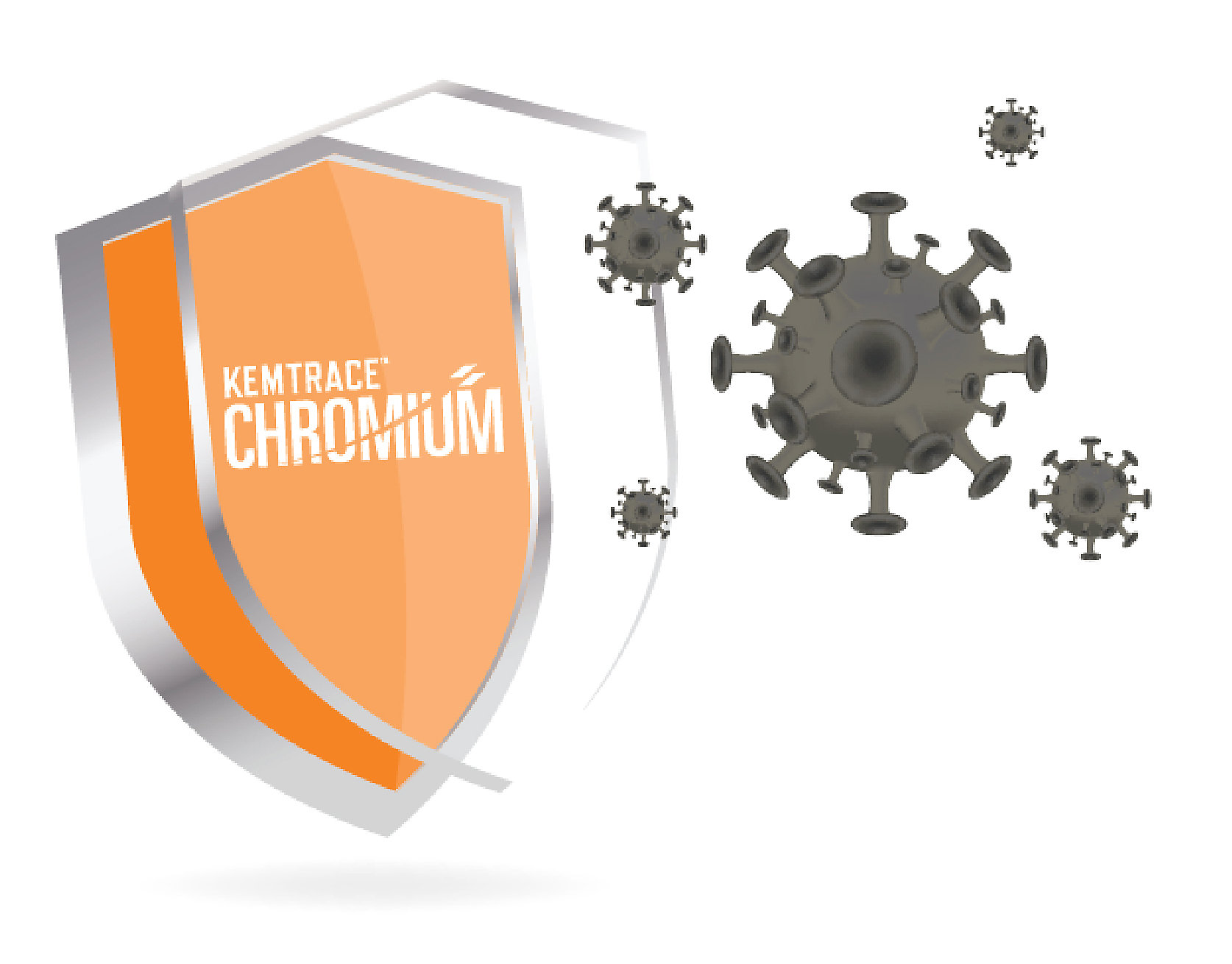Why Does Heat Stress Matter on Dairy Cattle?
Heat stress is caused by a combination of weather and environmental variables, including high ambient temperature, humidity, solar radiation, and wind speed. Under high heat load, when the animal’s ability to dissipate body heat is impaired, additional body heat may be detrimental to the animal’s well-being, which leads to negative impacts on both animal welfare and the economic performance of production system.
The impact of heat stress is one of the costliest issues facing producers and has consistently been associated with:


